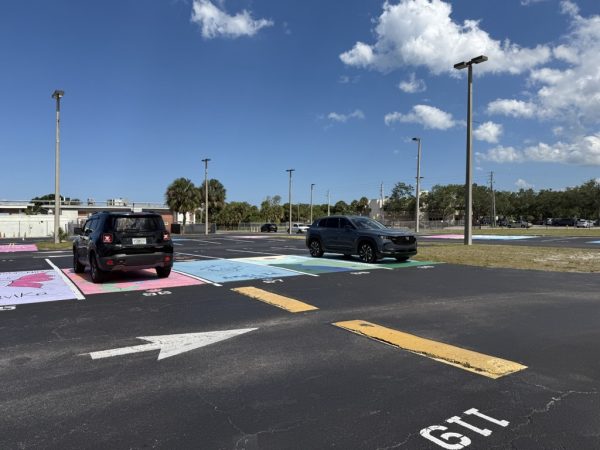Mind over matter
Pandemic fallout places additional stress on mental health
Senior Abby Goodman practices her violin before she begins her schoolwork. She said music creates a better head state for her studies, but it’s also a testament to how academic dedication doesn’t override her mental health.
“I strive to be a great musician and grades come second but what comes before both of those is my mental health,” Goodman said. “I try not to overextend myself anymore because, in previous years, I put a lot of stress on myself to be involved in umpteen different extracurricular activities. I achieved a lot in those years but I look back and realize it wasn’t without sacrificing my mental health because I felt physically worse when my mental state was sub par.”
For Goodman, the pandemic was an eye-opener.
“This year has definitely shown me that there is more to life than grades,” Goodman said. “My family suffered a lot from the pandemic, so I had to choose between helping my family and doing homework a handful of times. I can sleep more soundly knowing I am helpful to those I care about. That isn’t to say letting grades slip a lot is okay, but if I don’t make straight A’s, it doesn’t get me down.”
Freshman Shaila Venkat, however, doesn’t feel as if this pandemic has changed her outlook when it comes to grades.
“I think my case is a little different from most people since I’ve always tended to be slightly neurotic about my grades,” Venkat said. “But this pandemic has, in a way, made me more focused on my grades than ever before. The social aspect of school used to distract me from it a little, but now I’m learning alone, it feels like school has taken over my life. Due to a lot of aspects of in-person learning, like clubs and human interaction, are completely gone, the only part that’s really left is the academic and grade-oriented parts.”
Junior Meghan Bocinsky said her mental health and workload go hand-in-hand.
“I would say I have been more focused on my mental health during this pandemic,” Bocinsky said. “However, for me, having good grades is something that helps my mental stability, so I have still been prioritizing my school work.”
According to guidance counselor Hannah Smith, obsessiveness over academic excellence isn’t healthy.
“I hate the word ‘perfection’,” Smith said. “It idolizes the notion that somehow it’s attainable. It’s not. Education is not a number, a score or a letter grade. Education is knowledge and power that no one can take away from you once you have it. I wish that students looked at education as a way of understanding the world around them rather than obsessing about scores and grades.
“Yes, grades are important and you should always strive to be your best to reach your goals, but enmeshing your self-worth and who you are as a person with it is not okay,” Smith said. “Choosing to prioritize your mental health, especially during a pandemic, should be number one because you are not letter grade. It’s a tough year, even if it wasn’t, no one is ever asking you to be perfect. Your well-being, physical health and happiness supersede academics.”
Smith said she believes the pandemic dropped a bombshell on students when it comes to balancing well-being and grades.
“I think it’s sad that it’s taken a pandemic for students to understand that there’s more that matters than grades,” Smith said. “Maybe it’s been a wake-up call for some or maybe it’s just been reality hitting.”
Smith said there is an unprecedented increase in stress among students.
“Not just at West Shore either, [it’s] across the country and nation,” Smith said. “There’s an increase in anxiety, depression, suicidal ideation, self-harm and the emergence of these in younger children. There has been a whole global pandemic that has reshaped our view of the world and reality, a sudden shift like that is going to have repercussions. Unfortunately, that translates to declining mental health. We’ve been seeing a decline in youths’ mental health now for the past 10-12 years, the pandemic has put that on a pedestal now.”

I am a third-year writer for the Roar magazine, and this year's social media editor. Additionally, I co-run the Roar Instagram page. I love to write and...













































